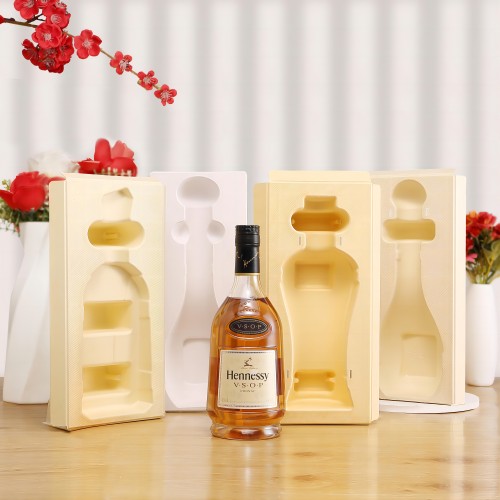In recent years, the wine industry has undergone a significant shift towards sustainability, driven by consumer demand for environmentally friendly products. Among the various aspects of wine production and distribution, packaging plays a crucial role in determining the overall sustainability of the product. But what constitutes the most sustainable wine packaging? Let’s delve into the realm of eco-friendly packaging solutions, including molded pulp packaging, molded fiber packaging, and other innovative alternatives.For the current market situation, molded pulp insert packaging It has a very advantageous development prospect and an extremely superior ecological environment. https://www.pulptray.com/
Molded Pulp Packaging: An Eco-Friendly Contender
One of the most promising contenders for sustainable wine packaging is molded pulp packaging. Also known as molded fiber packaging or pulp molding, this eco-friendly material is derived from recycled paper and cardboard fibers. The production process involves mixing these fibers with water to create a slurry, which is then molded into various shapes using specialized equipment. Once dried, the result is a sturdy and biodegradable packaging material that offers excellent protection for wine bottles during transit.
Molded pulp packaging stands out for its eco-friendly attributes. It is biodegradable, meaning it can naturally decompose over time without leaving harmful residues in the environment. Additionally, molded pulp packaging is recyclable, contributing to the circular economy by being reintegrated into the production of new packaging materials.
Keywords Integration: Navigating the Landscape of Sustainable Packaging
Inserting keywords such as “molded fiber packaging,” “molded packaging,” and “pulp molding” into the discussion expands our understanding of the diverse array of sustainable packaging options available to the wine industry. Molded fiber packaging encompasses various materials made from natural fibers, including molded pulp packaging derived from recycled paper and cardboard fibers. These materials share similar eco-friendly characteristics, offering biodegradability, recyclability, and excellent protection for wine bottles.
custom pulp molded
The Benefits of Sustainable Wine Packaging
Embracing sustainable wine packaging offers numerous benefits beyond environmental stewardship. By opting for eco-friendly packaging solutions, wineries can enhance their brand reputation, attract environmentally conscious consumers, and differentiate themselves in a competitive market. Moreover, sustainable packaging aligns with corporate social responsibility goals, demonstrating a commitment to reducing carbon footprints and minimizing waste throughout the supply chain.
Challenges and Opportunities
Despite the advantages of sustainable wine packaging, challenges persist in its widespread adoption. Cost considerations, logistical constraints, and the need for specialized infrastructure pose barriers to entry for some wineries. However, with advancements in technology and growing consumer awareness, the landscape is evolving rapidly, creating opportunities for innovation and collaboration across the industry.